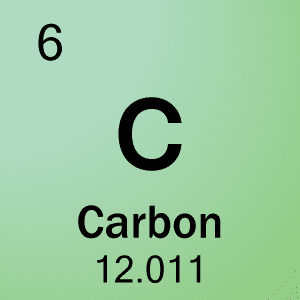This is a welcome effort from former George W. Bush speechwriter Michael Gerson: “An invasion of artificial outrage.” It’s a belated, but commendable, attempt to address the “danger [that] comes when talk radio becomes the voice inside your head.”
Gerson makes some good points about the way extremist hyperbole “is often a form of self-elevation.” (Always good to see that somebody’s been reading his Niebuhr.) I do wonder if he’s ever thought to apply that argument to the policies and rhetoric of his own anti-abortion movement, but let’s leave that for another time.
Gerson’s description of this tendency toward extremist, sky-is-falling rhetoric is helpful:
Jindal could have used his platform as a prospective presidential candidate to make points about the (very real) dangers of radicalization. Instead, he talks of invasion, colonization and conquest.
This is both appalling and symptomatic. In our politics, ideological assertions tend to gain an immediate, massive velocity. It is not enough to raise questions about global warming; it must be, according to Sen. James Inhofe (R-Okla.), the “greatest hoax ever perpetrated on the American people.” It is not sufficient to call for improved control of the border; immigrant children may be carriers of Ebola, as Rep. Phil Gingrey (R-Ga.) once asserted. It is zero to 100 in no time flat.
That example of Sen. Inhofe, I think, illustrates what Gerson is missing in his observation of this “appalling” tendency toward this kind of extreme, Manichaean rhetoric. Rather than the absurd claim that climate science is “the greatest hoax ever perpetrated on the American people,” Gerson would prefer that his fellow Republicans simply “raise questions about global warming.”
OK, great. Please proceed. Raise whatever questions you’d like to raise. Ask away.
But the problem here is that asking questions entails the possibility that those questions might have answers.

In the case of the questions that Michael Gerson or James Inhofe might want to raise about climate change, those questions do have answers. Solid, clear, formidable answers. The kind of answers that make it impossible to continue asking those questions in good faith.
And that’s why “raising questions about global warming” is not an option for a guy like Sen. Inhofe. His problem is not that he has unanswered questions. His problem is that he knows his questions have been answered and he doesn’t like the answers. He’s trying to avoid those answers — and that makes asking those questions the last thing he wants to do.
Gerson admirably would prefer that our political discourse be shaped by a calm, reasonable assessment of established facts and a prudent, logical consideration of possible actions. That’s a lovely thought, but it’s of no use to Sen. Inhofe if he hopes to continue denying the existence of climate change. Facts, reason, logic and prudence aren’t luxuries he can afford if he wants to maintain his current position.
The old lawyer’s joke explains Inhofe’s predicament: If the facts are on your side, pound on the facts. If the law is on your side, pound on the law. If neither the facts nor the law are on your side, pound on the table. Inhofe’s “artificial outrage” may be ridiculous and dishonest, but it’s the only form of pounding on the table that’s left to him. The “questions” that Gerson would have him raise have already been answered, definitively, and there’s no way he can win this argument or this political struggle if he plays by Gerson’s rules.
There’s no way Inhofe can win if he plays by any rules. So he’s throwing out the rulebook and just making stuff up.
Inhofe, McConnell, Boehner, et. al. have shown that can work in the short term, if we accept their premise that securing short-term political advantages means something is “working.” But in the long run, they still have to live in the same world as everybody else. Denying reality doesn’t mean you can put off living in it forever.
In that sense, Inhofe and McConnell would seem to be Keynesians — agreeing with the economist’s observation that, “In the long run, we’re all dead.”
They are, as Ian Welsh argues, making a death bet:
In it’s pure form, the death bet is just that, a bet that when the bill comes due, you’ll be dead. If you live a good life and die owing millions, well, what do you care?
… The death bet is why we are not dealing with climate change, even though we know that it is coming and we know it will kill hundreds of millions and might even destroy our entire society. The death bet is why our governments make huge tax cuts today knowing that either taxes will have to be increased in the future or spending will have to be drastically cut. But in the meantime the government can borrow, or print money, so who cares? The politicians who make the tax cuts won’t be in power, and many of the people who receive the cuts will be dead, so what do they care?
The death bet is why America had a 2.4 trillion dollar infrastructure deficit as of 2009. It is why Californians voted in 1978 to disallow property tax increases of more than 2 percent per year. And it is why tuition rates have increased by hundreds of percentage points more than inflation in many countries.
Michael Gerson is upset because the outlandishly false things his fellow Republicans — Inhofe, Jindal, Gingrey, etc. — keep saying make his party seem irrational and unreasonable. But if Welsh is right — and I think he is — then their apparent irrationality is actually quite reasonable. It’s the cold, pathological logic of a death bet.












